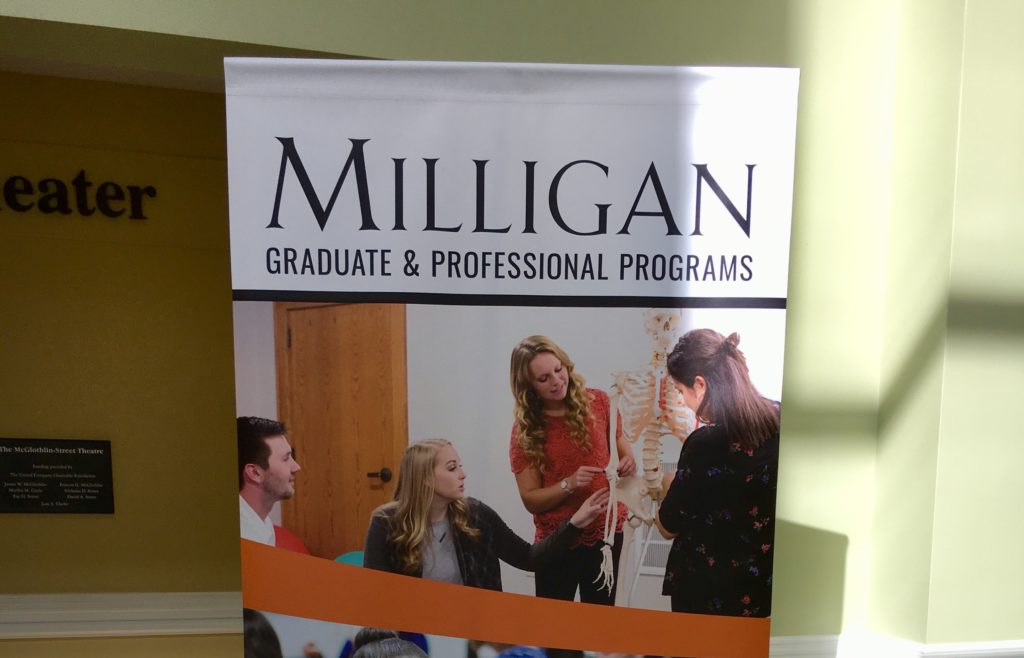On November 7, a graduate school fair was held in the Gregory Center. Multiple schools and organizations were in attendance. Milligan and Emmanuel Christian Seminary advertised their graduate programs as well as nearby regional schools such as Emory and Henry College and Tusculum University. Some schools came from further away such as Lipscomb University and West Virginia School of Osteopathic Medicine. Two residency programs: 215 of Southeast Christian Church and First Wesleyan Church were also in attendance.
Beth Anderson, director of calling and career exploration, answered a few of the most common questions students have about graduate programs.
It used to be that you had to have a high school diploma and then it was considered standard for people to have a bachelor’s degree. Anderson responded to whether or not a master’s degree is the new standard.
“There are some programs that prefer you have some experience before you apply for a master’s degree,” Anderson said. “I think a master’s degree is always a good idea but you have to kind of weigh, ‘is this going to get me in the door for a job that I want’, ‘is it going to be financially feasible when I get this master’s degree,’ [or] ‘am I going to have a higher income because I have this particular degree?’”
Anderson said that whether or not it is best to go to grad school right after you graduate “comes down to what your personal goals are and what your field is telling you,” the other advantage being that many companies will pay for their employees to get their master’s degrees. Anderson also said, “I feel that education does always pay off in the long run.”
As far as reasons for attending grad school at Milligan, Anderson spoke to Milligan’s new accelerated program to receive a master’s degree in a shorter time.
“While working on undergrad, you can go ahead and start taking classes for your master’s degree,” she said. As an example, she said, “You can finish up your MBA in five years instead of five-and-a-half years.”
Anderson said that by junior year, students should be asking themselves if and where they want to go to graduate school, and what is important to them “in a graduate school situation,” then looking at what is required for those particular programs, such as a minimum GPA, GRE requirement, entrance exams, applications and references.
In regards to an application, Anderson said “Get that in as early as possible, if they are looking for graduate assistantships or scholarships. That money goes first.”
Jenni Duran, assistant director of graduate and professional studies, spoke about the deadlines for early acceptance at Milligan, saying that for programs like counseling and OT, seniors should apply by Nov. 15, which will lock in tuition rate and allow students to take classes early at the graduate level.
“For instance, occupational therapy is a really well sought-out grad program,” Duran said. “If you are a [current] Milligan student, you can apply as a junior, potentially get interviewed, and if you are interviewed and admitted, then you lock in the tuition rate for that year, and you can take two graduate classes the following year.” said Duran. The early acceptance deadline for juniors is April 15.
“I think [with] opportunities like this on-campus graduate school fair… students may say, ‘Well, I’m not interested in any of those schools.’” Anderson then stated, “One of the things you want to do is investigate what opportunities might be right outside your door.”

